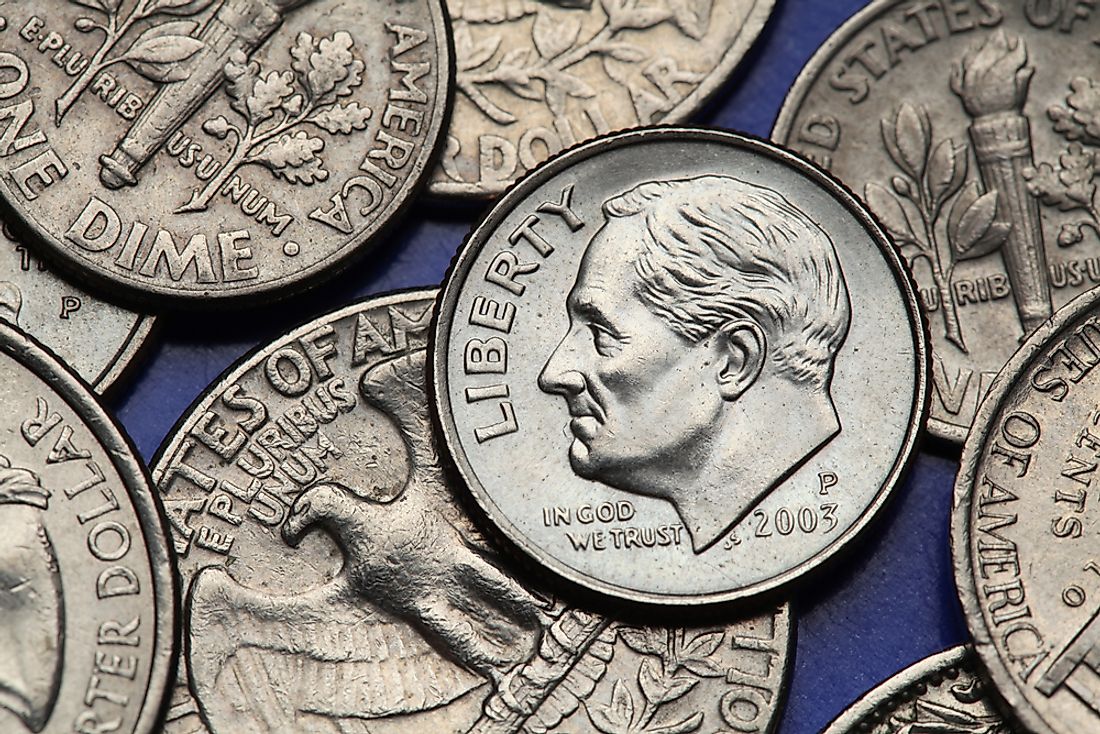Franklin D. Roosevelt - 32nd president of the united states

5. Early Life
Franklin D. Roosevelt, commonly known as FDR, was born at his family's estate in Hyde Park, New York, north of New York City, on January 30th, 1882. He was the only child of a very wealthy and prominent New York Dutch family, and as such enjoyed all kinds of privileges, including the undivided attention of his parents. He received private tutoring until the age of 14, at which time he began attending the Grotan School in Massachusetts. While he was not good at athletics, he excelled at academic studies, and enrolled at Harvard University in 1900. After graduation, he went to Columbia Law School. Passing the bar in 1907, Roosevelt began to practice law in New York City.
4. Rise to Power
Roosevelt entered politics in 1910, wen he ran as a Democratic candidate for the New York State Senate and was successfully elected. Despite the initial success, setbacks soon came. He lost in the U.S. Senate Election in 1914, and then he and James Cox, the Democratic Party's Presidential Candidate in 1920, lost by a wide margin to Republican Warren G. Harding. However, an greater setback was yet to come. In 1921, he was diagnosed with polio, becoming effectively paralyzed from the waist down and dependent upon a wheelchair to get around. Nonetheless, the resilient Roosevelt did not give up on his political ambittions. He was successfully elected as the Governor of New York in 1928 and, as the Great Depression hit the entire country and the Republican President, Herbert Hoover, increasingly came under attack, FDR seized upon the opportunity, and ran a campaign promising far-reaching reforms. He was elected as the 32nd President of the United States, and was elected again to the same position three times more, serving until his death in 1945.
3. Contributions
FDR was said to have successfully led the America out of the absolute abyss of the Great Depression, and his policy innovations and initiations had profound impacts. Upon taking office, he promptly put into action his "New Deal", consisting of many groundbreaking economic reforms to deal with the desperate times. He initiated grand, state-led projects to create employment opportunities, issued substantial social welfare to those in need, and increased Federal regulation of the stock market and mortgage rates. During his time in office World War II also broke out in Europe and the Pacific alike, and the U.S. formally joined the Allied fight after the Japanese attack on Pearl Harbor in December of 1941. FDR's effective leadership and wisdom greatly contributed to the ultimate defeat of the global Axis of Fascist powers in 1945.
2. Challenges
Although FDR's economic reforms greatly ameliorated the United States' economic situation by the middle of the 1930s, he was also facing the problems of huge government deficits and unbalanced budgets. Many of his overarching governmental interventions in the economy were declared by the Supreme Court to be unconstitutional, and he was unable to pass a good deal of the legislation he had in mind in order to fulfill all of his grand projects. At the same time, although the U.S. tried to remain neutral when World War II first broke out, Japan's attack on Pearl Harbor created one of the greatest states of emergency in U.S. history, leaving Roosevelt with no choice but to declare war on Germany, Italy, and Japan. The war had still not ended by the time he died, though it was in its last stages and Allied victory appeared imminent.
1. Death and Legacy
Franklin Delano Roosevelt suffered a massive cerebral hemorrhage, and died on April 12th, 1945, in his sanctuary in Warm Springs, Georgia. His sudden death mortified not only his nation, but the entire Western world. He was popularly adored and respected for being the President who led Americans out of the worst economic crisis in history, and then led his fellow Americans in a just war to end Fascist aggression. He set the precedent for a modern welfare state in the U.S., which had a significant impact on the US both then and in the decades to come. He is also remembered as one of the most important world leaders of the World War II Era, along with his allies Winston Churchill and Josef Stalin. As a President who overcame a major physical disability, he is also an inspirational figure for others, both domestic and abroad, able-bodied and handicapped alike. Indeed, Franklin showed the world that even from a wheelchair, a man can stand on top of the proverbial mountaintop, and lead a great nation.











